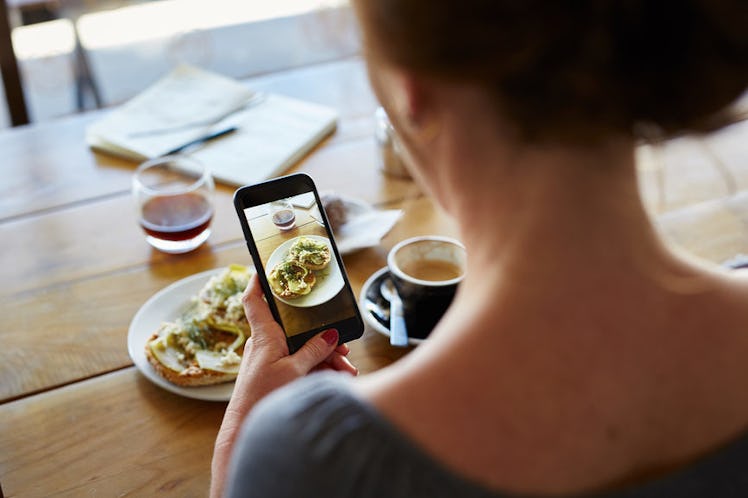
People Who Are Always Taking Pictures Are Happier And More Engaged
I have this one friend who literally has to take pictures every time we go out to eat. She doesn't always post the photos to her Instagram, but she just likes having them “in case there's a bad day” and she doesn't have any photos to upload to the photo sharing platform.
Look, I love her, but if that's not the dumbest thing I ever heard, I don't know what is.
Food is meant to be shared in the sense that there should always be enough to go around. Food isn't meant to be rearranged, styled and toyed with, all for the purpose of taking a photo. Unless you're a food photographer or work at one of those fancy restaurant magazines, leave your damn food alone.
See, the thing with my friend is that she takes it to another level. When I grabbed lunch with her a couple of weekends ago, she ordered four different items on the menu -- not to eat, but because they'd “look better in the photo.” If that's what got her her 30,000 Instagram followers, I'm sure she's doing something right, but that's so stupid to me.
Apparently, however, I'm wrong. According to researchers at University of Southern California Marshall School of Business, taking photos all the time (even of food) creates a better experience. It even makes you happier.
Wait, what?
They're more focused.
The researchers at USC performed NINE experiments for the study. That's nine more than I would've done, but oh well.
In one of the experiments, participants on two bus tours of Philadelphia were forbidden from using their phones in any way. One tour, however, was given cameras and encouraged to take photos. Those people claimed to enjoy the experience more and were -- wait for it -- more engaged.
This goes against everything I believe in. Isn't using your phone to document your life supposed to make you less engaged and less “in the moment”? According to USC, not quite.
They're more involved.
Hey, Instagram fiends: You're going to like this one.
In another study, one group of participants was instructed to take at least three photos of their lunch, while another wasn't. The photo-friendly group reported feeling more “immersed in their meal” while the other wasn't.
Good news for my brunch photo-taking friend; bad news for my sanity.
They're more attentive.
In yet another experiment, participants were given eye-tracking glasses (I know, where do I get a pair?) and taken to an archaeological museum. They were then instructed to take photos of things that interest them -- or not, if they didn't want to.
The study found that the people who took photographs spent a longer amount of time looking at the exhibit. They also reported being more into the exhibit than the people who didn't take any photos. In short, those who photographed everything were the more attentive bunch.
OK, can we all just talk about how rigged these experiments are because there's no way I can ever admit to my brunch enthusiast friend being more attentive than I am?
The weirdest part about this whole experiment, however, is that you don't even physically have to be taking a photo to reap the psychological benefits. You can just "pretend" to snap a mental photo to achieve the same effect.
Whatever -- I'm still not taking any photos of my eggs benedict, no matter what it does to me.
Citations: How Your iPhone Photos Make You Happier (Time)